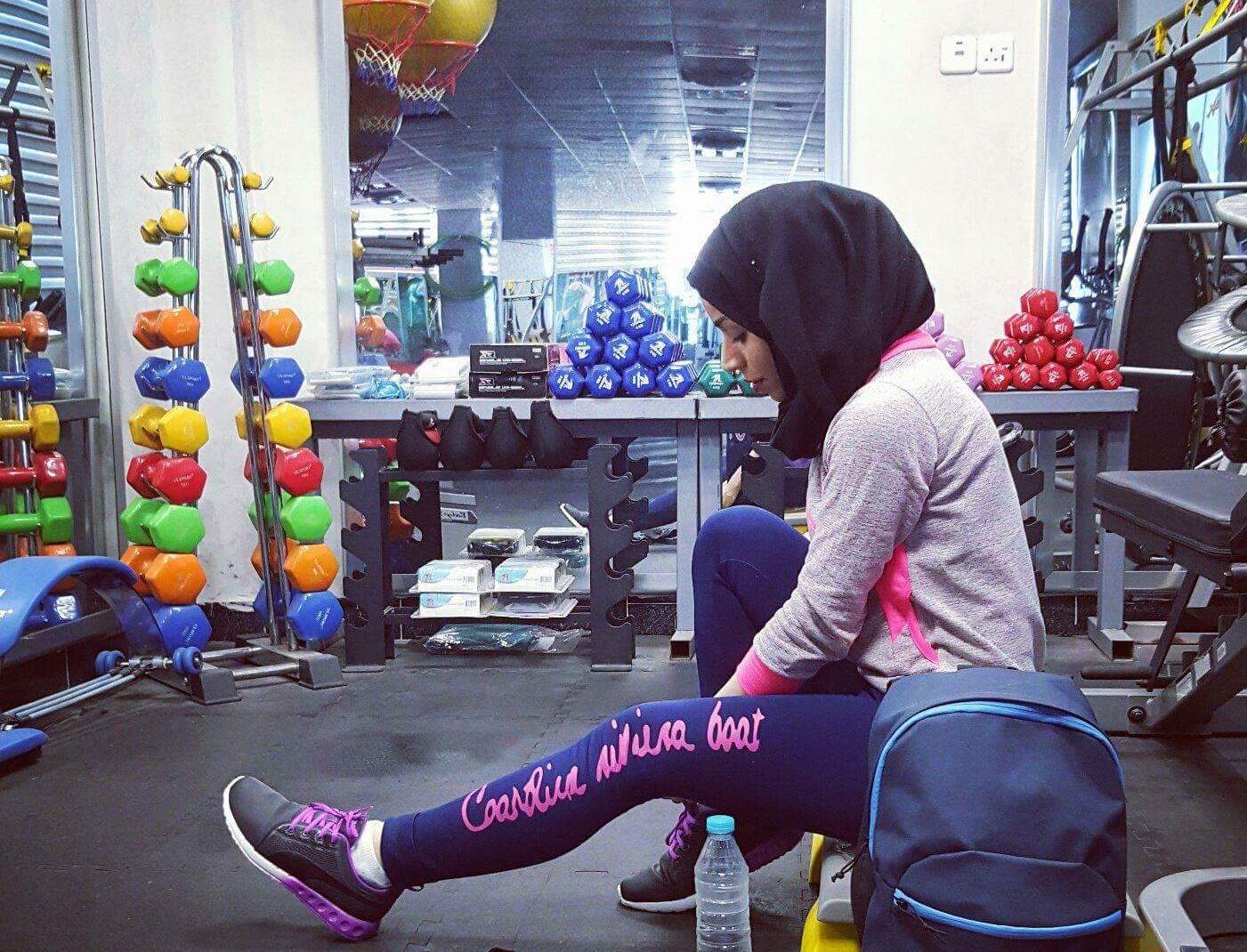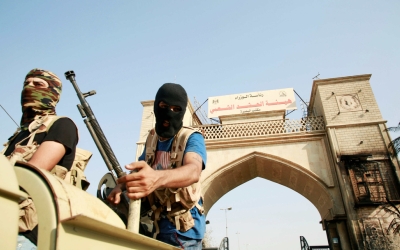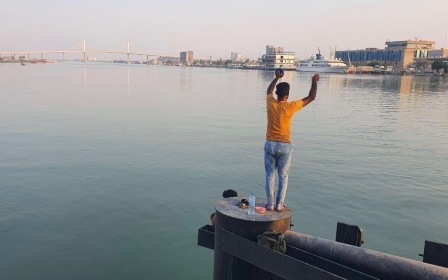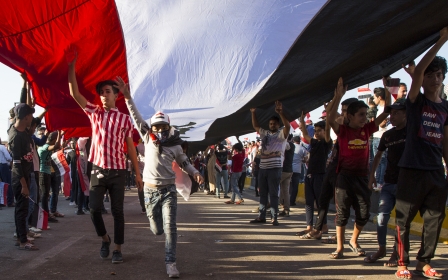Iraqi women's rights campaigner latest activist killed in Basra
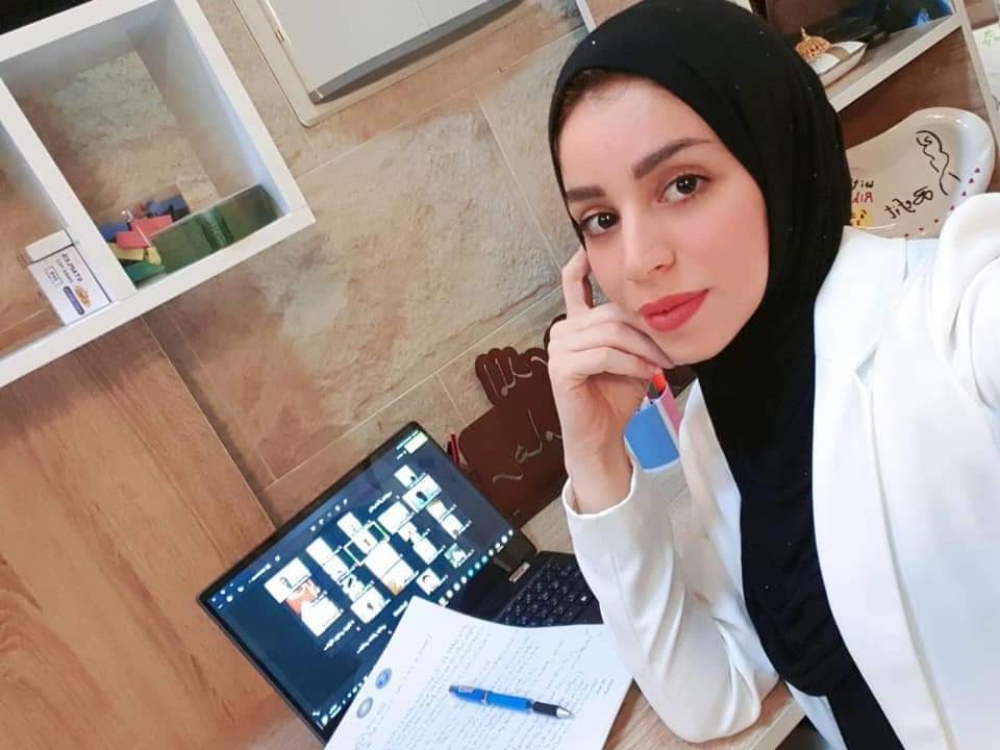
A prominent Iraqi women's rights campaigners has become the latest anti-government activist killed in the Iraqi city of Basra, prompting outrage.
Riham Yacoub, a 29-year-old anti-government activist and nutritionist who ran a women's gym in the southern city, was killed on Wednesday evening after unknown gunmen on the back of a motorcycle opened fire on her car with an assault rifle. Three companions were also injured.
Her death comes less than a week after the assassination of another Basra activist, Tahseen Osama, who was killed on Friday. Two other prominent activists in the city, Lodia Raymond and Abbas Sobhi, survived an assassination attempt on Monday, with the latter being hospitalised after being shot in the chest.
'We are expecting that we might get killed as well, but this won't stop us from asking for our rights and it won't stop us from living'
- Riham Yacoub
Speaking to Middle East Eye in 2018, during a period when Basra saw regular demonstrations against electricity and water shortages, Yacoub said that she had been receiving death threats.
At the time, she said that photos had been circulated of her with US consul Timmy Davis and that she had been accused of involvement in the torching of the Iranian consulate in Basra.
New MEE newsletter: Jerusalem Dispatch
Sign up to get the latest insights and analysis on Israel-Palestine, alongside Turkey Unpacked and other MEE newsletters
"They used some old photos of me and the American consul and they added them to other photos of me in the protests, saying that I am a spy and traitor working for the USA to sabotage the peaceful protests," she said.
In September 2018, another high-profile woman activist in Basra, Suad al-Ali, was shot dead in the street.
Yacoub said the killings and threats had made her afraid of walking the streets.
"Women are being targeted as you can see with the killing of Suad al-Ali," she said.
"We are expecting that we might get killed as well, but this won't stop us from asking for our rights and it won't stop us from living."
Translation: Activist Dr Riham Yacoub was assassinated in the centre of Basra. It is noteworthy that Riham was the organiser of the Women's March in Basra during the protests in 2018
Yacoub had been heavily involved in the anti-government protests that saw their prelude in Basra in 2018, but which eventually exploded across the country in October 2019.
She helped organise women's marches in the city, which - like much of Iraq - has long suffered from unemployment, lack of services, electricity and water shortages, corruption and intimidation from non-state armed groups.
Fury over activist killings
The killing of fellow Basra activist Osama sparked fury in the city on Friday. Security forces opened fire on protesters who threw rocks and petrol bombs at the governor's house and blocked several main roads.
In response to Osama's death, Iraqi Prime Minister Mustafa al-Kadhimi on Monday said he had sacked Basra police chief Lieutenant General Rashid Falih, as well as a number of security directors.
“Colluding with the killers or submitting to their threats is unacceptable, and we will do all that is necessary by the Ministry of Interior and security agencies to undertake the task of protecting society’s security from the threats of outlaws,” he tweeted.
It also comes just over a month since the assassination of prominent political commentator Hisham al-Hashemi in Baghdad.
Though no-one has claimed responsibility for the wave of killings and attempted killings, most have pointed the finger at the powerful militias who hold enormous influence in southern Iraq.
Since Kadhimi came to office in May, tensions have run high between him and the militias - particularly Kataeb Hezbollah, an Iran-backed group that accused Kadhimi of involvement in the assassination of Iranian military commander Qassem Soleimani and Iraqi militia leader Abu Mahdi al-Mohandis in January.
Although the group denied involvement in Hashemi's murder, it emerged that he had been directly threatened by Kataeb Hezbollah's media spokesperson Abu Ali al-Askari, who allegedly told him: “I will kill you in your house.”
There have also been repeated rocket attacks on US assets in Iraq, a point likely to be raised as Kadhimi meets with US President Donald Trump in Washington on Thursday.
Although Kadhimi has angered a number of armed groups by seizing border posts used for lucrative smuggling networks and imposing taxes on traders, activists claim he has been hesitant in moving to investigate militias over their involvement in attacks on activists.
Kadhimi came to power following months of anti-government protests, which ousted his predecessor Adel Abdul Mahdi in December.
Hundreds of protesters have been injured and killed, both in confrontations with the security forces and in targeted killings by unknown gunmen.
Kadhimi has promised to target those involved the killings, but Iraq's security services are under-resourced and poorly trained compared to the long-established militia organisations.
In 2018, Yacoub said that she was not optimistic that there would be any change in her country, but that she and other activists were determined to keep campaigning.
"They have not heard any of our demands until now. The situation is getting worse. The thing we can do is keep going till we get our rights and for sure there will be some losses on this path," Yacoub said.
"It is known that if anyone wants to correct his life path, he might face some losses - but this won't stop us and we will keep going without surrender."
Middle East Eye delivers independent and unrivalled coverage and analysis of the Middle East, North Africa and beyond. To learn more about republishing this content and the associated fees, please fill out this form. More about MEE can be found here.


